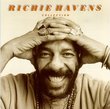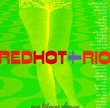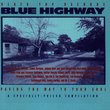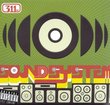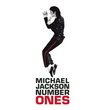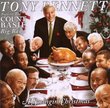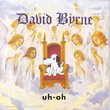| All Artists: Martin & Wood Medeski Title: Zaebos: The Book of Angels, Vol. 11 Members Wishing: 3 Total Copies: 0 Label: Tzadik Original Release Date: 1/1/2008 Re-Release Date: 8/19/2008 Genres: Jazz, Pop, R&B, Rock, Classical Styles: Modern Postbebop, Soul-Jazz & Boogaloo, Bebop, Funk, Jam Bands, Rock Jam Bands, Chamber Music Number of Discs: 1 SwapaCD Credits: 1 UPC: 702397736820 |
Search - Martin & Wood Medeski :: Zaebos: The Book of Angels, Vol. 11
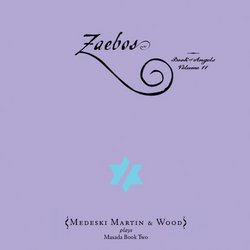 | Martin & Wood Medeski Zaebos: The Book of Angels, Vol. 11 Genres: Jazz, Pop, R&B, Rock, Classical
2008 arrival of Vol. 11 - Zabeos: The Book of Angels by Medeski, Martin & Wood. The funkified Jazz trio Medeski, Martin & Wood plays Fusion music by way of the downtown New York Avant scene of the 1990s. John Mede... more » |
Larger Image |
CD DetailsSynopsis
Album Description 2008 arrival of Vol. 11 - Zabeos: The Book of Angels by Medeski, Martin & Wood. The funkified Jazz trio Medeski, Martin & Wood plays Fusion music by way of the downtown New York Avant scene of the 1990s. John Medeski's fuzzy keyboards are equally indebted to the Meters, Jimmy Smith, Sun Ra, Chris Wood and Billy Martin provide fluid rhythms that can lock in like the JBs if the mood is appropriate. This ability to blend Jazz technique and structures with head-nodding grooves endeared the trio to the "jam band" community and its post-Jerry Garcia figurehead, Trey Anastasio of Phish, who joined the band live on several occasions. Similarly Requested CDs
|
CD Reviews"at turns prowling and meditative" nonlinearize | the third coast, usa | 09/18/2008 (4 out of 5 stars) " I haven't heard other albums in the Book of Angels series, so while I tend to appreciate the work of John Zorn, I approach this record with Medeski, Martin and Wood as the focus of my interest. And Zaebos IS interesting. Recent MMW studio albums have all involved guitarists, horn sections, turntablists, rigorous production strategies and other additions to create a layered soundscape that simultaneously enfolds and expands the trio's dynamic range. Zaebos, by contrast, is stripped-down and somewhat subdued, and it plays a little like --dare I say it?-- a traditional jazz album, though not without MMW's characteristic edge and energy. The trio is in elemental form here, and they develop and shape Zorn's compositions without ever being constricted. The result is original and refreshing, at turns prowling and meditative. The melodic structures of Zaebos are distinctly middle-eastern, and while the rhythms are strong, these songs don't seem to groove so much as slink, drift, and whirl, the music of clandestine intrigue and hypnotic reverie. Evocative of the restless excitement and haunting quietude of late nights in distant lands, this album is an excellent addition to MMW's already diverse catalog... " 3 1/2 stars-- diverse, but ultimately missing something for Michael Stack | North Chelmsford, MA USA | 09/09/2008 (3 out of 5 stars) "In the past few years, composer John Zorn breathed new life into his Masada project by composing a second book of songs for it: the Book of Angels-- some 300 jazz heads written using "Jewish scales", performed by musicians in and out of Zorn's downtown community. Referred to on the record label's website as "three prodigal sons...returning to the fold", keyboardist John Medeski, bassist Chris Wood and drummer Billy Martin at one time or another were associated with the downtown community, but found success as part of the jam band scene. "Zaebos" finds them performing eleven of Zorn's Book of Angels compositions.
Right from the start, the band hits the ground running on opener "Zagzagel", with some superb drum work, a nice driven keyboard line and a great splattering solo over a deep groove. In fact, this is pretty much the recipe for the album-- somewhat disjoint playing by Medeski over consistently phenomenal drumming and groove-locking basslines. The trio moves through a number of moods, covering trancey organ trios ("Sefrial"), acoustic piano jazz ("Rifion"), fractured, downtown jazz ("Ahaij"), deep funk ("Vianuel") and bubbling, tense, minimalist avant-garde (the stunning "Malach Ha-Saphor"). But as diverse as it is and as good as the performances can be, something doesn't quite grab me about this one. I can't put my finger on it, but with many of the other other volumes in this series, I was floored. But except for "Malach Ha-Saphor" and spiritual-jazz tinged "Chafriel", not much on this one really grabbed me. This is a good album, but it's missing something to make it a great one." |

 Track Listings (11) - Disc #1
Track Listings (11) - Disc #1

